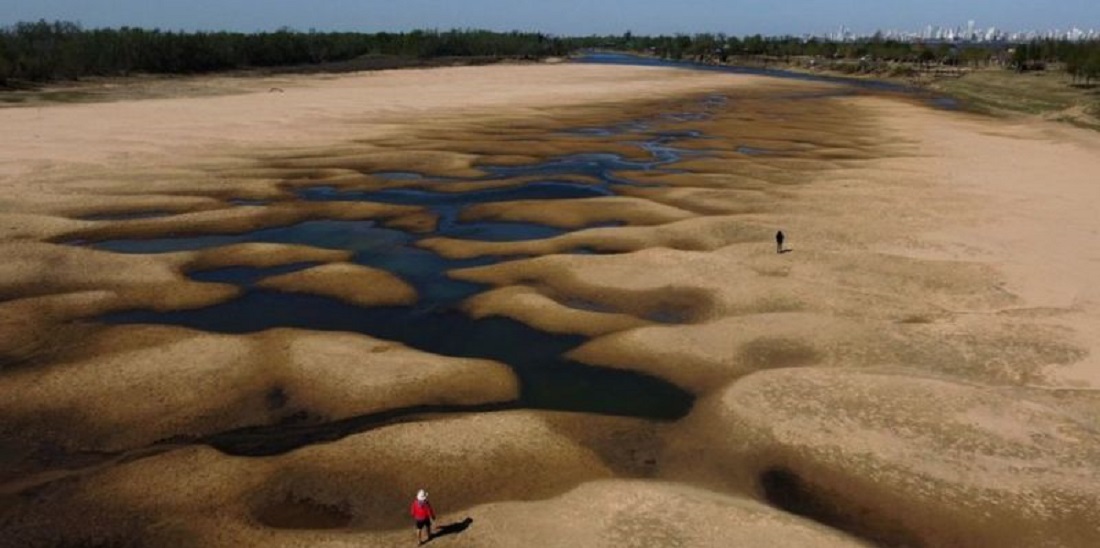
Paraná River’s Plummet: Rising Costs and Export Challenges for Argentina’s Agricultural Sector
Sep, 17, 2024 Posted by Sylvia SchandertWeek 202438
The new and pronounced drop in the flow of the Paraná River, the main export route for grains and derivatives from Argentina, has begun to affect the loading of ships destined for export, causing higher costs for the agricultural export sector.
According to the latest hydrometric report released on Monday by Argentina’s National Water Institute (INA), the Paraná River measured 0.61 meters at the height of Rosario, in the central province of Santa Fe, where 70% of the grains and 96% of the oils and flours exported by Argentina, one of the largest agricultural producers and exporters in the world, usually leave from there.
Last May alone, the river reached more than 3 meters. Now, in order to avoid running aground, ships are forced to undertake the journey out to the Atlantic with less cargo.
“For now, operations are underway, but the load has dropped by 10% to 15% above normal,” sources from the Argentine Chamber of the Oil Industry and the Center of Cereal Exporters told EFE.
After loading what they can in Rosario, some ships complete their loading in the southern Buenos Aires port of Bahía Blanca.
Argentina, which depends on agricultural exports to replenish its meager monetary reserves, had already suffered multimillion-dollar losses in mid-2021 due to a drastic drop in the water level of the Paraná.
According to a report by the Rosario Stock Exchange, the river’s average level in the first week of September was the second lowest since 1970.
“As the INA forecasts point out, no major improvements are expected in the flow of the Paraná River near Rosario in the coming months. Not even in the most encouraging forecasts will the level be exceeded by mid-November,” warned the Rosario Stock Exchange.
Higher costs due to lower water levels in the Paraná may include:
- There is a need to adjust cargo volumes on certain types of vessels at Rosario’s port terminals.
- Additional costs to supplement cargo at other ports.
- Losses due to lower export prices, among other factors.
“The forecasts for the coming months are worrying as we approach the peak of wheat logistics. The persistence of these water levels could start to generate significant losses for the agroindustry,” warned the Rosario Stock Exchange.
Source: Portal Portuario
-
Grains
Sep, 15, 2020
0
BRAZIL DOUBLES SOY EXPORTS TO HOLLAND IN JAN-AUG 2020
-
Ports and Terminals
May, 28, 2021
0
Wilson Sons registers 463% increase in fertilizer imports by Tecon Rio Grande
-
Other Logistics
Mar, 09, 2023
0
Uruguay, Brazil agree on joint infrastructure works
-
Trade Regulations
Apr, 23, 2025
0
Paraná to Begin Exporting Pork to Chile

